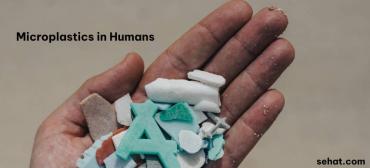Diverticular Disease
| |
| Click Image to Enlarge |
What is diverticular disease?
In the colon, some people have small pouches that bulge outward through weak spots. Diverticular disease is an inflammation or infection in the pouches, known as diverticula, which are located in the colon.
-
A single pouch is called a diverticulum.
-
Two or more pouches are called diverticula.
-
Having diverticula is a condition called diverticulosis.
-
Having infected or inflamed diverticula is a condition called diverticulitis.
-
The conditions of diverticulosis or diverticulitis are referred to as diverticular disease.
Diverticulitis occurs in 10 to 25 percent of people with diverticulosis. Approximately half of all Americans over age 60 have diverticulosis at some time.
The disease is common in developed or industrialized countries, particularly the United States, England, and Australia where low-fiber diets are common. It is rare in countries such as Asia and Africa, where people eat high-fiber, vegetable diets.
What causes diverticular disease?
Although not proven, the main cause of diverticular disease is believed to be a low-fiber diet. Fiber is the part of fruits, vegetables, and grains that the body cannot digest.
-
Soluble fiber dissolves easily in water and takes on a soft, jelly-like texture in the intestines.
-
Insoluble fiber passes almost unchanged through the intestines.
Both kinds of fiber help make stools soft and easy to pass, which helps to prevent constipation.
Constipation is the main cause of increased pressure in the colon, making the muscles strain to move stool that is too hard. The excess pressure caused by the straining makes the weak spots in the colon bulge out, forming diverticula.
Doctors do not know what causes the infection that causes diverticulitis, but believe it may begin when stool or bacteria are caught in the diverticula.
What are the symptoms of diverticular disease?
The following are the most common symptoms of diverticular disease. However, each individual may experience symptoms differently. Symptoms may include:
-
Diverticulosis. Diverticulosis may not cause any discomfort or symptoms, but could include mild cramps, bloating, and constipation. These symptoms may be caused by irritable bowel syndrome (IBS), stomach ulcers, or other problems, and do not always indicate diverticulosis.
-
Diverticulitis. The most common symptom is abdominal pain and the most common sign is tenderness around the left side of the lower abdomen. When infection is the cause, fever, nausea, vomiting, chills, cramping, and constipation may also occur.
The symptoms of diverticular disease may resemble other medical conditions or problems. Always consult your doctor for a diagnosis.
How is diverticular disease diagnosed?
In addition a complete medical history and physical examination, your doctor may perform a digital rectal examination (DRE) to feel for tenderness, blockage, or blood. A stool sample, abdominal ultrasound, computerized tomography (CT) scan, barium enema, flexible sigmoidoscopy, colonoscopy, and X-rays may also be part of the diagnostic process.
Treatment for diverticular disease
Specific treatment for diverticular disease will be determined by your doctor based on:
-
Your age, overall health, and medical history
-
Extent of the disease
-
Your tolerance for specific medications, procedures, or therapies
-
Expectations for the course of the disease
-
Your opinion or preference
the American Dietetic Association recommends consuming 20 to 35 grams of fiber each day. Treatment may include increasing dietary fiber intake by eating foods such as the following:
-
Whole grain breads, cereals, and other products
-
Fruit, such as berries, apples, and peaches
-
Vegetables, such as broccoli, cabbage, spinach, carrots, asparagus, and squash
-
Beans
In the past, avoiding foods with small seeds, such as tomatoes or strawberries, was suggested because it was believed that particles could lodge in the diverticula and cause inflammation. Consult your doctor regarding which foods you should avoid.
Treatment for diverticulitis may also include:
-
Medications (to control pain)
-
Medications (for infection and inflammation)
-
Medications (to control muscle spasms)
-
Resting the colon, with liquid diet and bed rest
-
Preventing or minimizing complications, such as the following:
-
Infection
-
Perforations or tears
-
Blockages
-
Bleeding
-
Hospitalization may be required for acute attacks with severe pain or infection. Surgery may be necessary in some cases.





















